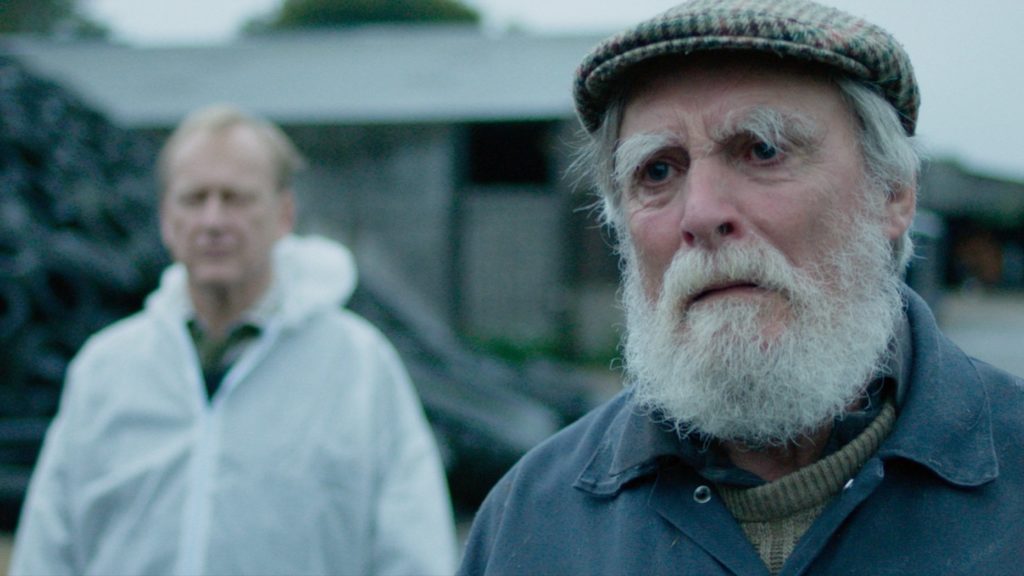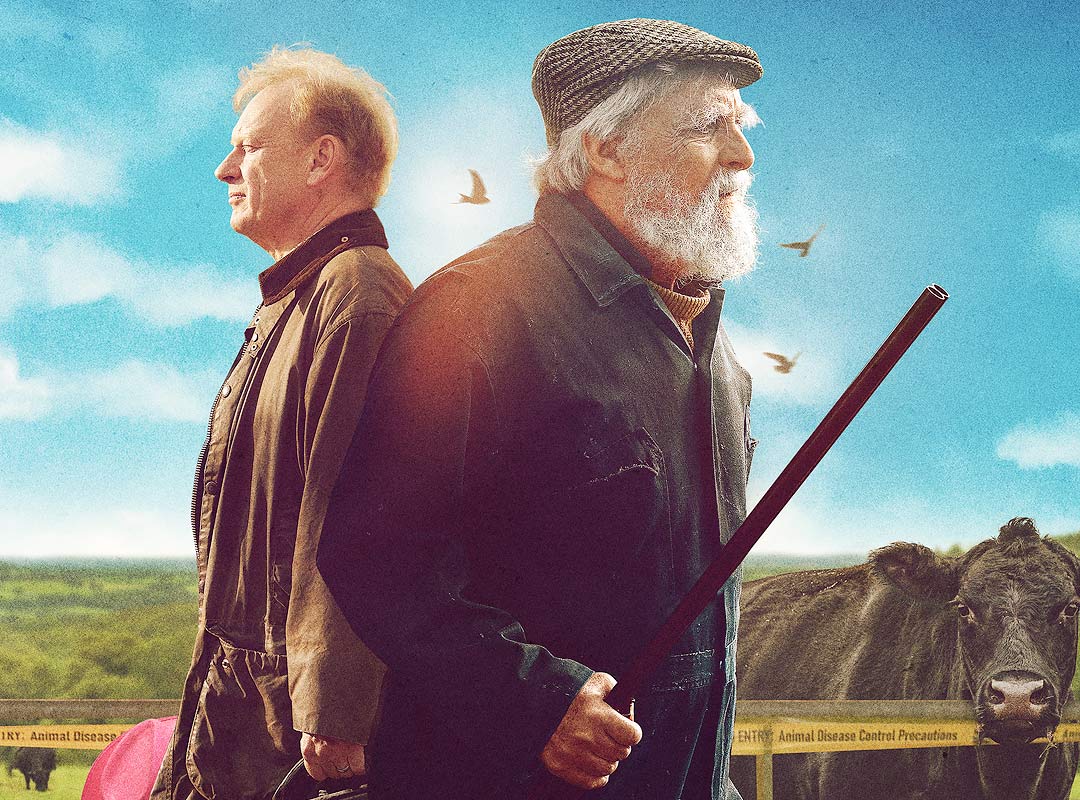
Bringing Broadway to the big screen, And Then Come the Nightjars is the screen adaptation of the multi-award-winning play from Bea Roberts. Based around two men over a period of years in rural England, facing the rise of disease in their cattle and difficult choices for both parties, this intimate drama centers around the relationship of two men trying to live vastly different, difficult lives. We get a close look into pastoral farm life and the struggles of modern agriculture as well as the opposing end, of the veterinarians assigned to care for, and sometimes cull, a farmer’s beloved animals. Written and adapted by Bea Roberts and directed by Paul Robinson, this film dedicated to the thousands of farmers that lost their livelihood is a glorious, vivid look at rural England and the tumultuous times faced in the region throughout the years.
Beginning in Essex, early 2001, there has been a resurgence of foot and mouth disease for the first time in three decades—and it’s spreading. We arrive on a bustling farm where Michael (David Fielder) is going about his routine. Arriving shortly after the day has begun, in a pink cowboy hat no less, and receiving a string of mostly friendly curse words is veterinarian Jeff (Nigel Hastings). Come to tend to his cattle, especially one that’s due to give birth, the two seem to have a healthy, happy connection. A twanging guitar and brilliantly lit stills of landscape and farm life give you a snapshot into the life with a rural soundtrack as the men banter, smoke and for Jeff, sometimes drink while they wait. We come to find Michael was recently widowed, but isn’t interested in speaking about it, turning from the conversation instead to the birdcalls, noting he’s never seen a nightjar, but he always hears them. Bad luck he calls them: the bird of death.
Talk goes to the culling happening in the country, everything farmers had to their name put up in smoke, but it’s all for precaution, Jeffrey assures. The discussion pointedly turns towards Jeffrey’s tumultuous marriage which he also seems keen on avoiding, realizing in the face of a widower he shouldn’t count himself unlucky. Michael opens up that illness suddenly claimed his love, and Jeffrey resorts back to their banter to bring up better memories, distracting from the pair’s collective sadness. Jeffrey takes this as his cue to leave, believing Michael can tend to the new calf. As he leaves Michael still doesn’t understand the purpose of the man’s visit, and believes it’s a sign of bad news, and a quiet Jeffrey can’t make any promises.
Another beautiful landscape fades into a radio broadcast informing residents that the government’s top officials believe this outbreak is worse than the last outbreak that plagued the country in 1967. A month has passed since we last saw our characters, and the government will be extending the policy of culling, that all animals within a three-kilometer radius of an infected farm will be slaughtered, and burned. Jeffrey arrives at Michael’s farm which has been taped off and has plenty of personnel standing by to cull. Brandishing a shotgun, the farmer tries to drive off the invaders threatening his herd, and Jeffrey steps in to try and comfort and reason with the man before the inevitable.
Cinematography and soundtrack blend seamlessly for a gorgeous look at the English countryside accompanied by a very rustic guitar, piano and string blend. While the dialogue can sometimes feel dense, and sometimes events can slow to a crawl, we focus almost exclusively on the interactions between the two men; the performances of the pair is a feat in itself. Fielder is every bit the foul-mouthed pensioner afraid to move forward and sad to look back, trapped in an industry that never seems to change, even as the culture around it shifts for selfies and subsidies instead of tours of the dairy worker’s farms. Jeffrey is an empathetic character as well, fighting a growing alcohol dependency and trying to stay connected to the community he works with; his portrayal as well as his chemistry with his co-star carry the film with their close ties. The sanctity of life itself, its beauty, as well as its friendships, is the focal point of this piece, whether it be the lives of the cows we slaughter or those that tend to them. This film is distinctly compassionate in its delivery, sometimes so you find yourself heartbroken.
Tender and sometimes barbaric, hopeful yet sometimes tragic, this is a truly human film that’s transferred the stage to the screen rather successfully. Reminding me sometimes of the theatrical achievements of The Banshees of Inisherin, this tale of friendship is tested repeatedly by loss and change. If you’re interested in a dramatic thriller with tour de force performances executed by their leads, this might be the intimate, dialogue driven film for you to sit down with. This emotional tale weaves through modern history, highlighting an often-forgotten industry and the individuals working in it, showing the evolution of not just culture but connection between people. If you’re feeling patient and want an expressive, historical piece to move you, And Then Come the Nightjars is a compelling journey of adjustment through the ages that has all the intimacy of a live theater performance, delivered adeptly for the silver screen.
And Then Come the Nightjars (2023) is available to view on major streaming platforms from October 2nd.
